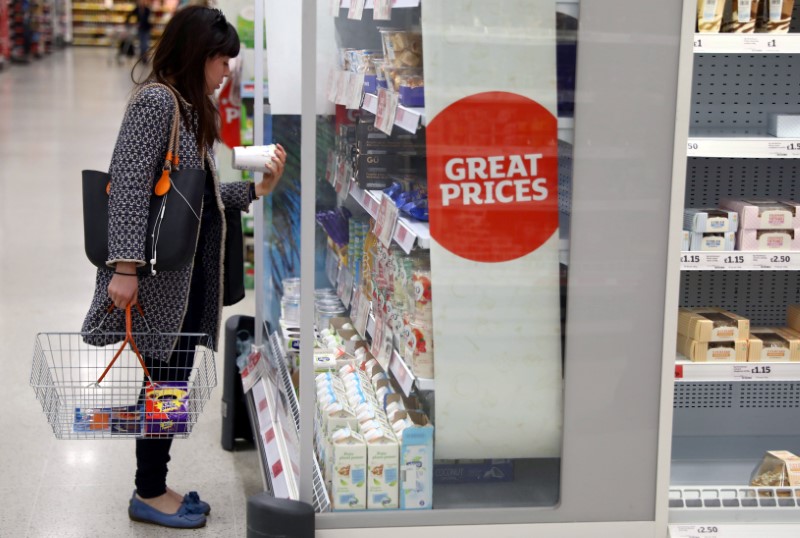By James Davey
LONDON (Reuters) - British grocery inflation hit its highest level since 2013 over the last quarter, led by price rises in products such as butter, fish and fresh pork, industry data showed on Tuesday.
Grocery inflation was 3.6 percent in the 12 weeks to Dec. 3, up from 3.4 percent in its November report, market researcher Kantar Worldpanel said.
Prices were falling in only a few categories, such as fresh poultry and crisps, it said.
"We expect inflation will peak in this period or the next and will drop next year once the (lagged) FX impact starts to fall away," Bernstein analyst Bruno Monteyne said.
Official data on Tuesday showed overall British inflation rose to its highest level in nearly six years in November, tightening the post-Brexit vote squeeze on households whose spending is the main driver of the country's economy.
Kantar said overall supermarket sales increased in value by 3.1 percent year on year over the 12 weeks to Dec. 3 - below the rate of inflation.
It said Tesco (LON:TSCO) was the best performer with a sales rise of 2.5 percent. Sainsbury's, Morrisons and Asda had growth of 2.0 percent, 1.4 percent and 1.2 percent respectively.
Shares in Tesco were up 0.5 percent at 0938 GMT, Sainsbury's was down 2.7 percent and Morrisons was down 2.9 percent.
All of the big four grocers continued to lose market share to German discounters, who are continuing to expand aggressively.
Aldi's sales increased 15.1 percent, as it reclaimed the crown as Britain's fastest growing grocer. Lidl's sales increased 14.5 percent.
Kantar noted that online grocery sales growth slowed considerably to 2.8 percent, though specialist Ocado (LON:OCDO) outperformed the market with growth of 5.2 percent.
Kantar forecast that over Friday Dec. 22 and Saturday Dec. 23 UK shoppers would spend 1.5 billion pounds ($2.0 billion).
Last week research group IGD forecast the UK grocery market would grow 2.6 percent to 22.2 billion pounds over the entire festive period.
